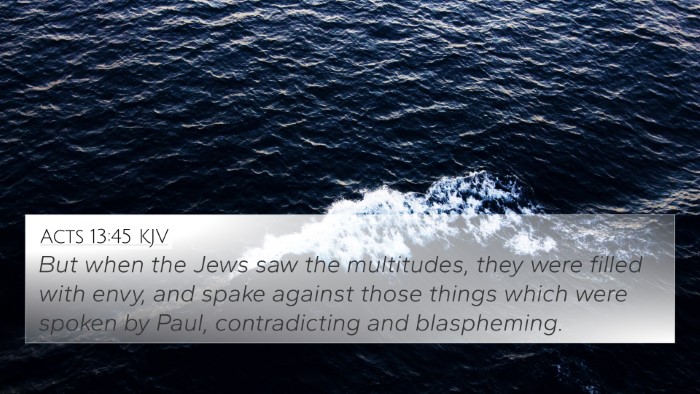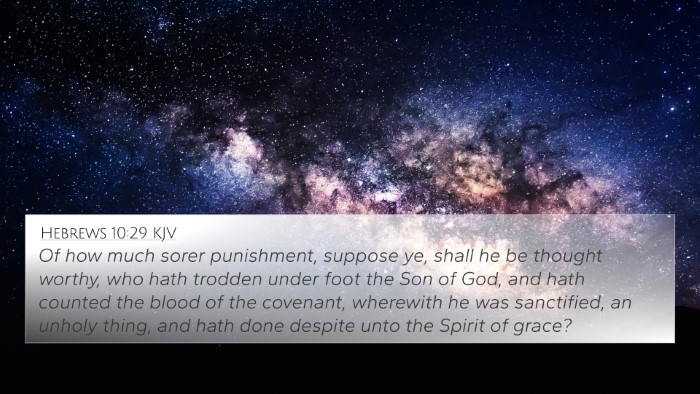This section features a detailed cross-reference designed to enrich your understanding of the Scriptures.
Below, you will find carefully selected verses that echo the themes and teachings related to Matthew 7:6 KJV. Click on any image to explore detailed analyses of related Bible verses and uncover deeper theological insights.
 Proverbs 9:7 (KJV) »
Proverbs 9:7 (KJV) »
He that reproveth a scorner getteth to himself shame: and he that rebuketh a wicked man getteth himself a blot.
 Matthew 10:14 (KJV) »
Matthew 10:14 (KJV) »
And whosoever shall not receive you, nor hear your words, when ye depart out of that house or city, shake off the dust of your feet.
 Acts 13:45 (KJV) »
Acts 13:45 (KJV) »
But when the Jews saw the multitudes, they were filled with envy, and spake against those things which were spoken by Paul, contradicting and blaspheming.
 Matthew 15:26 (KJV) »
Matthew 15:26 (KJV) »
But he answered and said, It is not meet to take the children's bread, and to cast it to dogs.
 2 Timothy 4:14 (KJV) »
2 Timothy 4:14 (KJV) »
Alexander the coppersmith did me much evil: the Lord reward him according to his works:
 Hebrews 10:29 (KJV) »
Hebrews 10:29 (KJV) »
Of how much sorer punishment, suppose ye, shall he be thought worthy, who hath trodden under foot the Son of God, and hath counted the blood of the covenant, wherewith he was sanctified, an unholy thing, and hath done despite unto the Spirit of grace?
 2 Peter 2:22 (KJV) »
2 Peter 2:22 (KJV) »
But it is happened unto them according to the true proverb, The dog is turned to his own vomit again; and the sow that was washed to her wallowing in the mire.
 Matthew 24:10 (KJV) »
Matthew 24:10 (KJV) »
And then shall many be offended, and shall betray one another, and shall hate one another.
 Hebrews 6:6 (KJV) »
Hebrews 6:6 (KJV) »
If they shall fall away, to renew them again unto repentance; seeing they crucify to themselves the Son of God afresh, and put him to an open shame.
 2 Corinthians 11:26 (KJV) »
2 Corinthians 11:26 (KJV) »
In journeyings often, in perils of waters, in perils of robbers, in perils by mine own countrymen, in perils by the heathen, in perils in the city, in perils in the wilderness, in perils in the sea, in perils among false brethren;
 Matthew 22:5 (KJV) »
Matthew 22:5 (KJV) »
But they made light of it, and went their ways, one to his farm, another to his merchandise:

















